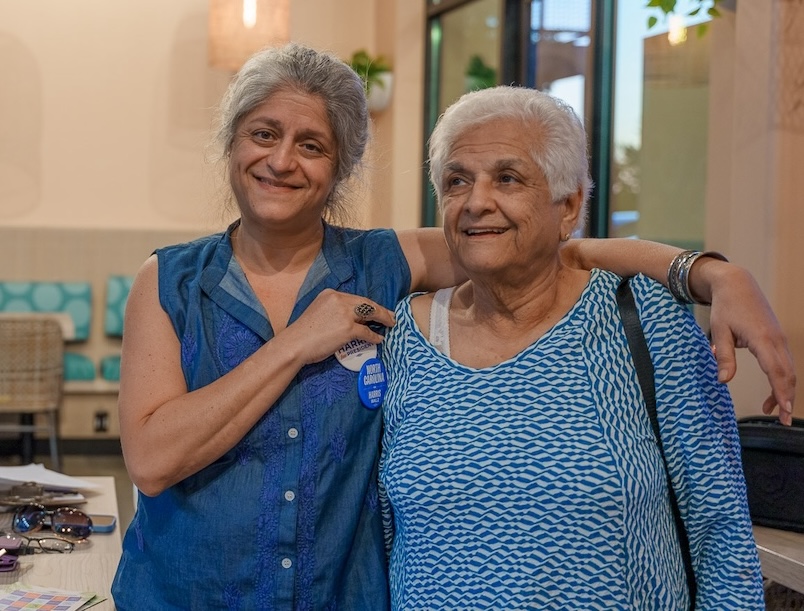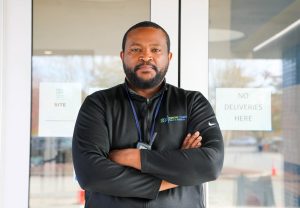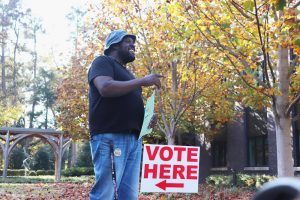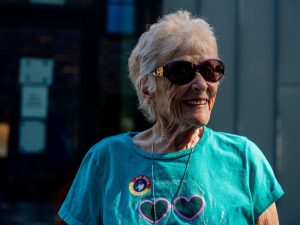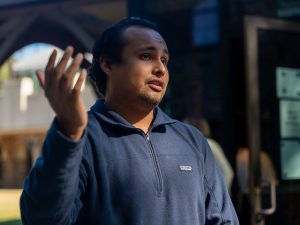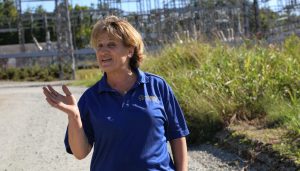There are two things to know about the Primlanis. They’ve been here a long time. And when it comes to politics, they don’t play.
“I’ve been campaigning for the Democratic Party since before I was a citizen!” said 84-year-old Saroj Primlani, wearing a baseball cap stamped with the words “Harris for President.”
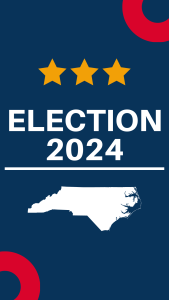
“It’s mind-boggling to me that a presidential election is finally open to a person like me,” said Monisha, popping a pani-puri into her mouth. “I cried when she became the nominee.”
North Carolina, a crucial swing state in the 2024 general elections, is home to over 49,700 people of South Asian descent. As Election Day approaches, members of the Research Triangle’s South Asian — or desi — community are eagerly watching Kamala Harris’s candidacy.
Some, like the Primlanis, feel that Harris’s ascent to the top of the Democratic ticket signals the opening of new doors. Other, less politically active desis in the Triangle, are cautiously optimistic.
Lokesh Singhal, 34, a supply chain analyst with Home Depot, is in the latter group. At a recent Diwali Night celebration at the Fruit in Durham, Singhal spoke of Harris thoughtfully.
“I’m not that politically aware,” Singhal said, speaking over a loud Bollywood EDM mash-up booming through speakers. “but I hope that Harris’s mixed heritage gives her an appreciation for other cultures.”
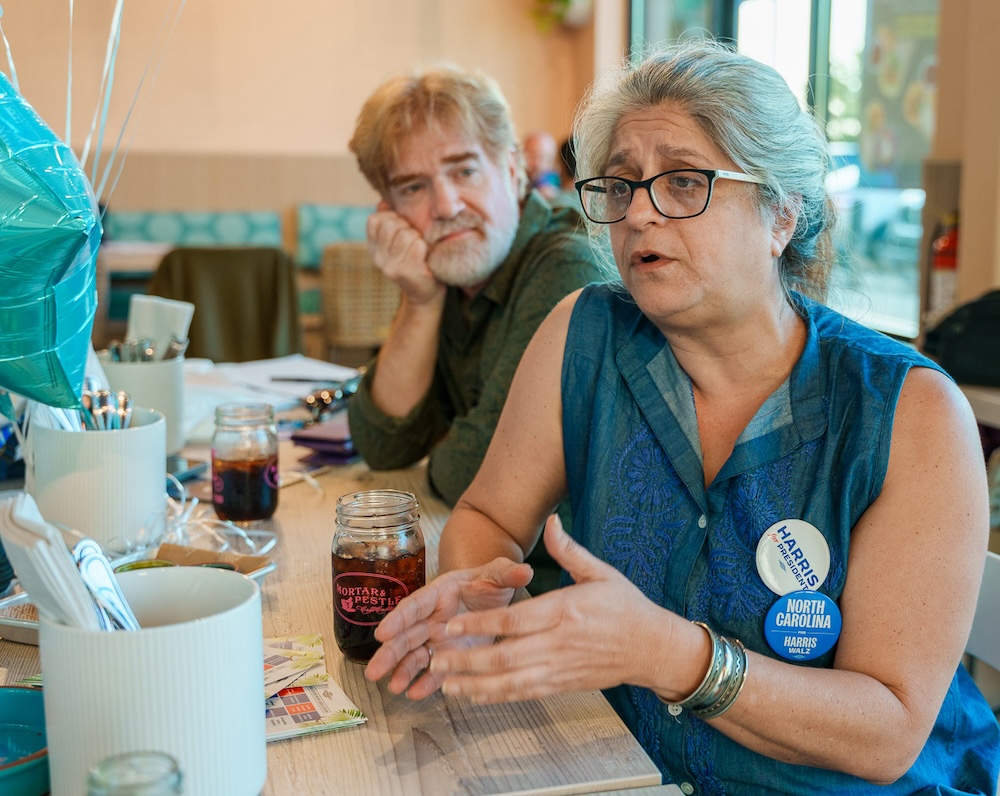
Monisha Primlani is sure that it will.
“I don’t know Kamala Harris personally– but I know that she comes from two worlds, like I do,” said Monisha, who remembers being the only Asian in her Rocky Mount high school.
“When you grow up reconciling different worlds. It gives you perspective. “
Two families, parrallel paths
Like Kamala Harris, Monisha was raised in the United States by immigrant parents.
Monisha’s late father — like Kamala Harris’s mother Shyamala Gopalan — arrived in America in 1958.
Her mother, Saroj Primlani, was born in colonial Delhi and watched her parents march for Indian independence alongside Mahatma Gandhi. She joined her husband in the U.S. in 1960 and the couple moved to North Carolina in 1979. Like Harris’s mother, the Primlanis raised two American-born daughters.
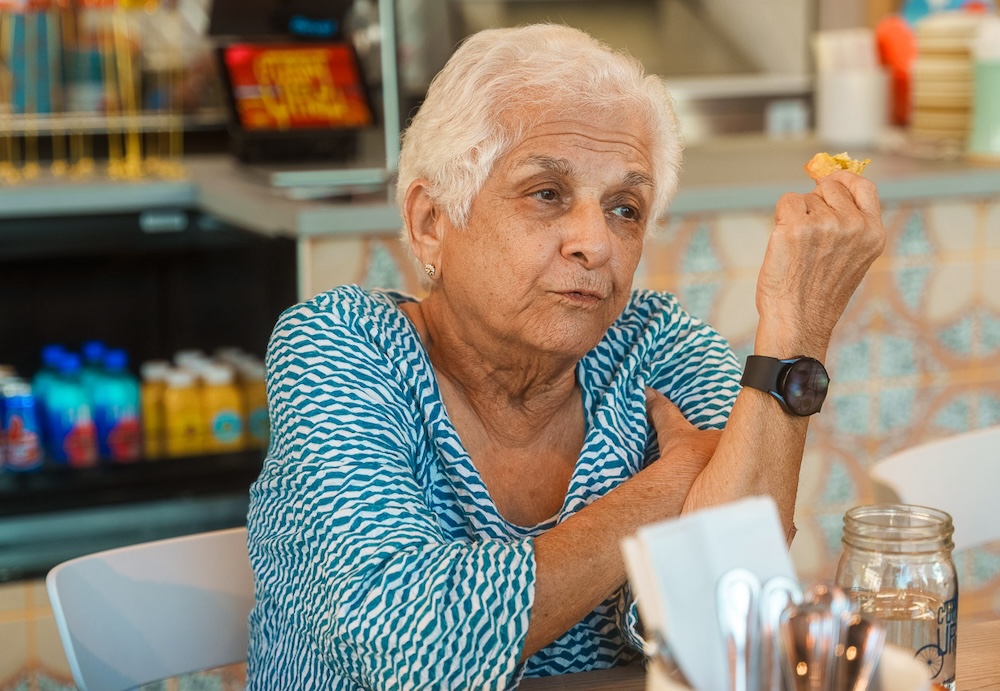
Saroj sees herself just as much as an American as she is Indian.
“All this talk about whether Harris is Black or Indian is very difficult to hear,” Saroj said. “She’s both. When you have multiple identities, like I do, people try to define you. And when people tell me what they think my identity is, I get confused.
“Yes, I’m Indian but I’ve been here for 60 years. I’m American, too.”
Not all South Asians in the Triangle relate to Harris as personally as the Primlanis. Nevertheless, they are excited about the distinct energy she’s brought to the election.
Bina Amin, 27, a fourth-year medical student at UNC-Chapel Hill, attended the chaat party after a 12-hour rotation at the hospital. Although Amin always knew that she would vote blue, Harris has made her much more enthusiastic about the choice.
Not everyone in Amin’s circle feels the same. Her grandfather did not vote for former President Obama in 2008 but will vote for Harris because of her Indian heritage. And Bina’s boyfriend’s parents, naturalized American citizens from Gujarat, India, always vote red because they believe it’s better for business.
“Is there any way to change their minds?” Amin asked the Primlanis over a serving of vada-pav.
“It’s hard,” answered Monisha.
Textbanks, carpools and canvassing
Monisha joined a group of five other local South Asian women volunteers recently for a trip to a Kamala Harris rally in Greensboro. They convened at the Jersey Mike’s right off 1-40 on Farrington Road, and piled into a big white van.
At the wheel was Sanji Datar, 55. Since February, Datar has spent every weekend canvassing for the Democrats in neighborhoods around North Carolina State University.
“Ever since Kamala Harris became the nominee it’s been amazing to see what’s happened at the grassroots. People — mostly women — have been calling and campaigning relentlessly for Harris within their own communities,” she said before the van pulled out of Durham towards Greensboro.
Saroj, Monisha, and Datar are part of the North Carolina chapter of They See Blue, an organization with chapters in 30 U.S. states that mobilizes Americans of South Asian origin to vote and campaign for the Democratic party. The group’s 159 members regularly text each other to set up carpools for canvasses, share invites for debate watch parties, and discuss how to get more South Asians out to vote.
Mona Singh, 59, who chairs the group, has been volunteering with the Democratic party since 2000. This election, she’s transitioned to campaigning full time.
“I’m very excited about Kamala Harris, but it’s not because she’s Indian,” she said. “It’s because she is who she is! She’s qualified, competent and has great policy stances.”
Across the desi community, people agree that this election is close and crucial. Monisha Primlani has spent the final days of early voting canvassing and driving people to Durham’s early voting centers. She recently met a woman who has lived in Durham for 40 years and only speaks Spanish. Monisha drove her down to the polls to cast her very first vote — for Kamala Harris.
“ABCDs — American-Born Confused Desis — like me, don’t even have a Barbie yet,” Monisha said. But if we can’t get a Barbie, I’ll take a president.”
Above: Monisha and Saroj Primlani are following Kamala Harris’ campaign closely. Photo by Kulsoom Rizavi — The 9th Street Journal

